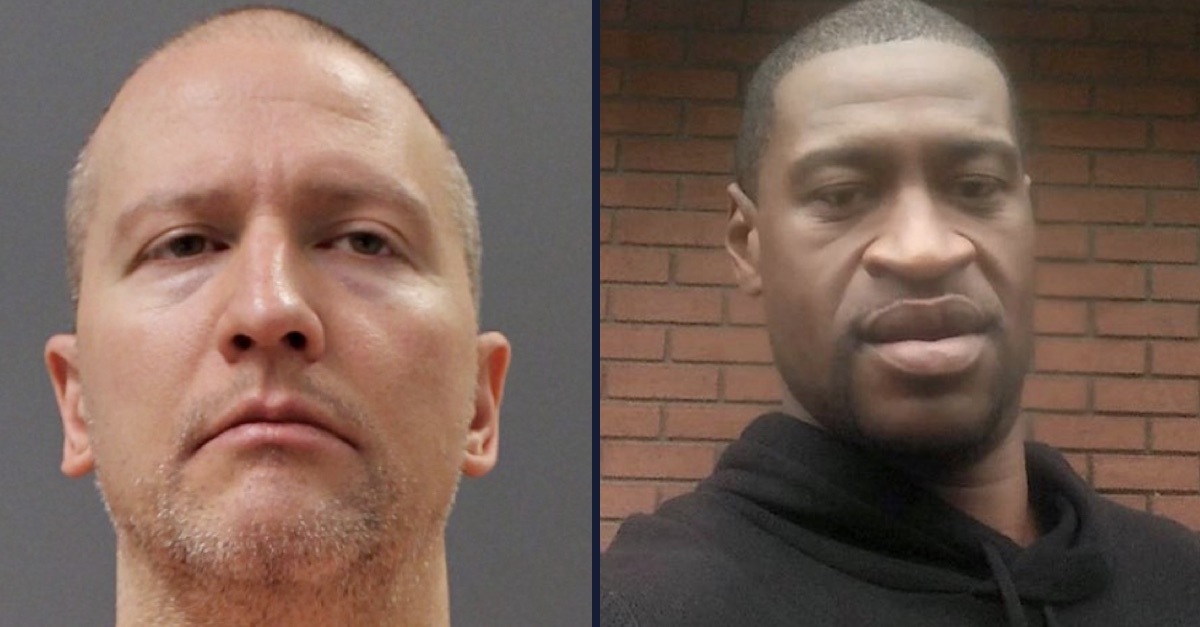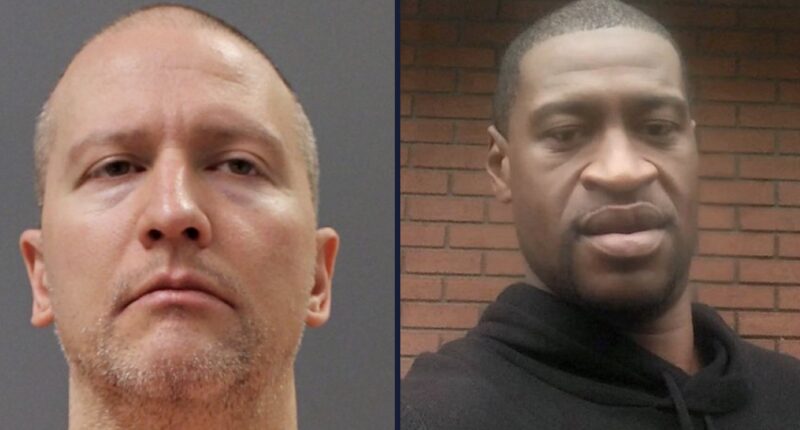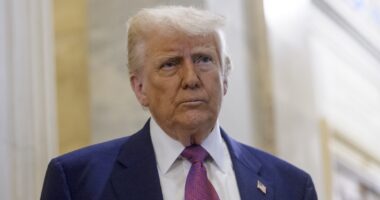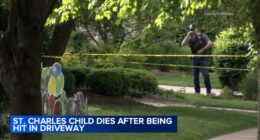
Derek Chauvin (in a Minnesota Department of Corrections mug shot), George Floyd (Image via attorney Ben Crump).
Prosecutors in Minnesota have responded to Derek Chauvin, the ex-Minneapolis officer found guilty of killing George Floyd, for requesting to test heart and fluid samples from Floyd’s autopsy. They find it hard to believe that he made such a request.
“No legal basis exists for Defendant’s discovery requests,” prosecutors charged Tuesday in a motion to reconsider after U.S. District Judge Paul Magnuson granted Chauvin’s legal team access to the samples a day earlier. “It defies belief that, if Defendant had been aware of a weaker medical defense theory than the one already rejected by his state jury, he would have chosen trial again, in the face of overwhelming evidence and a Guidelines sentence of life.”
Chauvin, 48, is looking to run tests on Floyd’s heart and fluid samples to see if it was a heart condition that ultimately led to his death and not Chauvin’s knee being on Floyd’s neck for more than 9 minutes, per prosecutors. His lawyers believe Floyd may have died due to a “catecholamine crisis when his paraganglioma secreted excessive levels of catecholamines,” according to the discovery motion filed by them on Dec. 13, with a “pulmonary edema” possibly being caused by Takotsubo’s myocarditis, which is described by Chauvin’s legal team as a type of a heart attack or acute heart failure.
A doctor allegedly told this to Chauvin’s former attorney, Eric Nelson, in April 2021 before Chauvin was federally indicted on murder charges, but nothing was said to have been done. “Nelson provided ineffective assistance of counsel to Mr. Chauvin by failing to consult with him on this issue,” Magnuson said in his order, citing Chauvin’s legal claims.
In addition to murder, Chauvin was also convicted of violating Floyd’s civil rights during their encounter in May 2020, with his death sparking nationwide protests. He is currently trying to appeal that civil rights charge in federal court after failing to overturn his murder conviction through an appeal to the U.S. Supreme Court last year.
On Tuesday, prosecutors argued that Nelson’s decision to not follow up on the doctor’s heart tip was a “strategic” one that courts have recognized as “virtually unchallengeable” in the past.
“Counsel made a choice, based on his prior consultation with other experts and his experience defending Defendant’s state trial, not to order certain forensic testing or further discuss with Defendant a variation of an expert defense that had already failed at that trial,” the prosecutors said in their motion to reconsider. “This is precisely the type of strategic decision that courts have recognized as ‘virtually unchallengeable.’ And even if Defendant could establish unreasonable performance, he could not demonstrate prejudice from counsel’s decisions.”
More from Law&Crime: ‘Very disturbing’: Cop working as English substitute teacher banned after apparently reenacting George Floyd’s murder in the classroom, talking about ‘dead bodies he had seen’
Chauvin is currently serving state and federal prison sentences of no less than 20 years for killing Floyd. He pleaded guilty in the federal civil rights case and is serving concurrent sentences after being convicted by a 12-member jury on state charges for unintentional second-degree murder, third-degree murder, and second-degree manslaughter.
In November 2023, Chauvin was attacked by a fellow inmate at the prison where he’s being held, Federal Correctional Institution Tucson, in an alleged stabbing that his attacker claimed was “symbolic of the Black Lives Matter movement.” Floyd’s death sparked widespread protests from Black Lives Matter supporters who used it to shine a light on police brutality against Black Americans.
The Office of the Federal Defender, which is handling Chauvin’s appeal, could not be reached for comment Wednesday.








